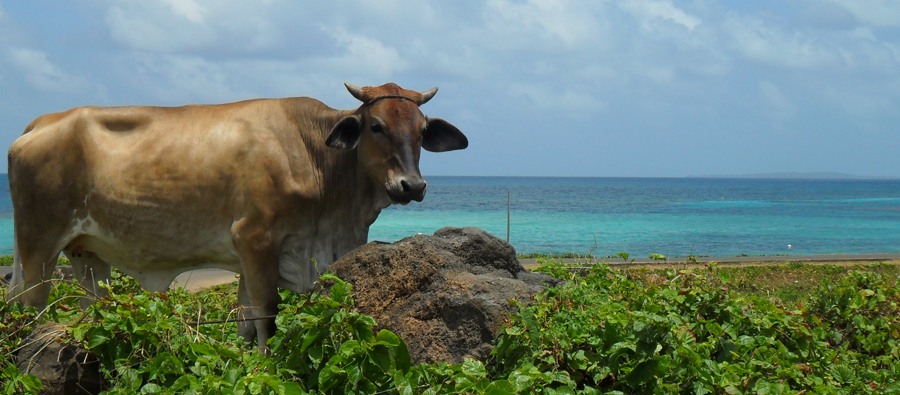Errington J. Thompson. President of the Agriculture Alliance of the Caribbean (AACARI), on the challenges climate change presents to farmers in the Caribbean. This guest-post is part of Farming First’s ‘Farmers Taking Action on Climate Change’ campaign for the COP25.
My farm has been one of the lucky ones in the Bahamas. Compared to other farmers, I have been only slightly affected. But other farmers in the region have been affected in many different ways and circumstances.
When there is a hurricane, our region is beset with floods caused from the rising water levels. During the last hurricane, one of the farms on the southern side of the island, had to contend with a tide that rose all the way up past the farm. It caused a number of animals to die and crops to drown. The farmers who experienced this could not adequately prepare, as they had never had to contend with a disaster of that magnitude before.
They have, however, sought ways to minimise the level of damage that could occur in the future. In the case of rising tides, farmers have begun to build up their animal pens – moving everything to a higher level. They have also begun to plant trees along the coastline, especially ones like mangroves or coconut, which can take root deep into the soil and hold the coastline.
Farmers are now looking to adapt to the erratic rainfall, which can cause anything from a drought to a flood depending on where you live. For farmers who are experiencing drought, they are now harvesting water, so that they can ensure their crops are adequately resourced in drier weather. For those experiencing heavier rainfall, they are setting up new draining and irrigation systems.
But even though farmers are already putting adaptation measures in place, they need the right level funding and support to be able to continue this work and ensure a sustainable future for their farm.
One way to do this is better integrate them into discussions around climate change. Farmers must lead the discussion by grouping together. They need to represent themselves, not only to the local governments, but non-governmental agencies, and then partner with these agencies so they can work together to find specific solutions to fit their individual needs.
To enhance the role of farmers in the global discussion on climate change, AACARI has been working with other farmers unions through the Climakers Initiative. The initiative is a global alliance, made up of research institutes, private sector associations, multilateral organisations, and led by farmers.
AACARI recently hosted the first regional Climakers Consultation, which outlined the challenges and opportunities associated with climate-smart agricultural practices. The aspect we championed was the regional intricacies and peculiarities involved in the discussion. No two places are the same, nor should any two solutions. Regional differences must be considered if we are to ensure no one is left behind.
We are working together to build farmers’ capacity to influence decisions on climate change. Part of this means identifying practices that farmers have found to be better at adaptation or mitigation, and ensuring these solutions make their way to policy-makers.
It also means guaranteeing that farmers’ needs are aligned with climate change goals, so that any changes that need to be made are economically and socially viable for the farmer.
For the agencies working to combat climate change head on, they need to work with farmers to help us understand the intricacies of climate change. We know the research, finance and tools are there. Farmers just need helping to access them.



